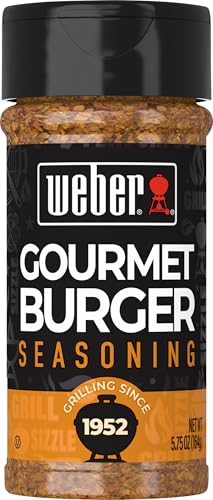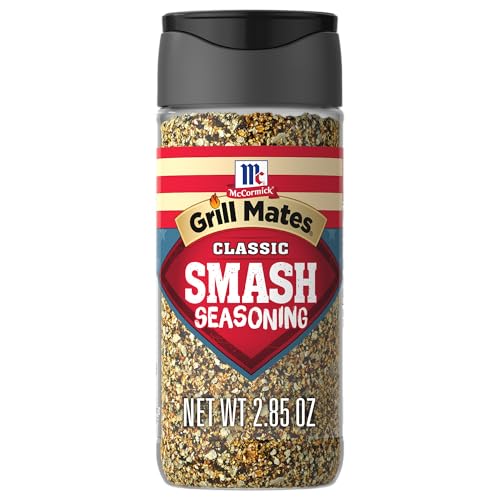Key Takeaways
- Animal Welfare Matters: Ethical sourcing plays a crucial role in burger meat quality. Opting for grass-fed or pasture-raised options enhances flavor and reflects better treatment of livestock.
- Environmental Impact: Beef production significantly affects the environment, contributing to greenhouse gas emissions and resource consumption. Choosing sustainable or plant-based alternatives can reduce ecological harm.
- Health Considerations: The nutritional profile of burger meat can vary widely. Lean meats, grass-fed options, and thoughtful toppings can improve healthfulness without sacrificing taste.
- Support Local and Ethical Practices: Sourcing ingredients from local, humane farms not only fosters community connection but also leads to more flavorful and responsible burger creations.
- Explore New Alternatives: Plant-based and lab-grown meats are innovative options that satisfy both taste preferences and ethical standards, enabling delicious creations without the negative impacts of traditional meat production.
When I sink my teeth into a juicy burger, I can’t help but savor the moment. But as delicious as it is, I often find myself pondering the bigger picture. The ethics surrounding burger meat are more complex than they seem, touching on issues like animal welfare, environmental impact, and health concerns.
In this article, I’ll take you on a journey through the ethical implications of our favorite fast-food delight. Together, we’ll explore the choices behind the meat we consume and consider how our decisions affect not just our plates but the world around us. Join me as we dive deep into the fascinating and sometimes troubling world of burger meat ethics.
The Ethics of Burger Meat: A Deep Dive
In my journey as a burger enthusiast, I’ve marveled at the joy that a perfectly crafted burger brings. Yet, every bite invites reflection on the ethical dimensions of burger meat. This isn’t just about taste—it’s about the profound impact of our choices.
Animal Welfare
Each burger begins with a crucial question: how were the animals treated? Factory farming often leads to overcrowded conditions, where animals face stress and suffering. Choosing meat from grass-fed or pasture-raised sources often results in healthier animals and, potentially, a more flavorful burger. I prioritize ethical sourcing, understanding that the welfare of livestock directly correlates to the quality of the meat.
Environmental Impact
The environmental footprint of burger meat can be staggering. Beef production contributes significantly to greenhouse gas emissions and land degradation. I find it essential to consider alternatives like plant-based patties or sustainably sourced meat. Exploring these options not only diversifies my burger creations but also aligns with a commitment to reducing ecological harm.
Health Concerns
Health plays a vital role in my burger experiments. While a classic beef burger delights, the rise of lean meats and plant-based ingredients broadens my culinary scope. Reducing saturated fats and incorporating wholesome ingredients fosters healthier recipes. It’s about balancing indulgence with wellness—delicious doesn’t have to mean detrimental.
Community and Culture
Every burger I create connects me with community and culture. Local ingredients often yield unique flavors that resonate with a sense of place. Supporting local farms fosters better economic practices and strengthens community ties. I love crafting burgers that reflect local heritage, bringing people together over shared stories and flavors.
Transparency in Sourcing
Transparency in meat sourcing enriches my burger adventures. Knowing where my ingredients come from enhances the experience. I strive to choose suppliers who openly share their practices, ensuring that both quality and ethics guide my selections. My burgers aren’t just meals; they embody values that I cherish.
Understanding the ethics of burger meat doesn’t hinder my passion for creating new and unique burgers. Instead, it enriches my journey as a creator and grill master. Every burger is an opportunity to delight the palate while honoring ethical considerations. I embrace this tightrope walk, savoring the challenge and the flavors that emerge.
Environmental Impact
Creating amazing burgers isn’t just about mixing the right flavors; it’s also about considering the environment’s health. The way we approach burger meat significantly affects our planet’s resources and climate, influencing how I design my unique recipes.
Resource Consumption
Beef production considerably impacts resource consumption. Each pound of beef requires approximately 1,800 gallons of water due to the resources needed for grazing and feed. As someone passionate about burgers, I recognize the need for more sustainable choices. Exploring plant-based alternatives or leaner proteins can reduce water and feed requirements. When I craft recipes, I often consider these factors, incorporating ingredients that minimize water usage while still delivering satisfying flavors.
Carbon Footprint
The carbon footprint of beef production is startling, often estimated at 27 kilograms of carbon dioxide equivalent per kilogram of beef. Raising livestock releases greenhouse gases, influencing global warming. I strive to select local, ethically sourced meats where possible, which tends to have a lower carbon footprint than factory-farmed options. It gives me joy to create burgers that not only taste great but also help reduce my overall ecological impact, making each culinary creation a step toward sustainability.
Animal Welfare Concerns
Understanding animal welfare is crucial for anyone who enjoys crafting unique burgers. The quality of burger meat directly reflects how animals are treated in the meat production process, and this awareness can enhance our culinary creations.
Factory Farming Practices
Factory farming often prioritizes efficiency over animal well-being, leading to overcrowded conditions and limited space for animals to move. Cattle typically endure stressful environments, which can affect their health and the quality of the meat. When I worked in my burger joint, I emphasized sourcing meat from farms that treat animals ethically. Supporting local farms that prioritize humane practices not only makes for better-tasting burgers but also aligns with a more compassionate food philosophy.
Ethical Treatments
Ethical treatment of animals involves ensuring they have adequate space, access to pasture, and proper care. Grass-fed and pasture-raised meats often come from cattle that live healthier lives, which translates to superior flavor in burgers. I find that using high-quality, ethically sourced meat elevates my creations—friends always rave about the enhanced taste at gatherings. Knowing where my ingredients come from adds a layer of accountability, allowing me to enjoy grilling without compromising my values.
Health Implications
Burger meat’s health implications warrant a closer look, especially for those passionate about crafting unique and delicious creations. I often think about how the choices I make impact not only my culinary adventures but also the health of those enjoying my burgers.
Nutrition of Burger Meat
Choosing the right burger meat involves examining the nutritional profile. Lean cuts, like sirloin or ground turkey, offer lower fat content, while maintaining protein levels. Red meats, such as ground beef, provide essential nutrients like iron and zinc, which I’ve come to appreciate in my cooking. Opting for grass-fed sources brings additional omega-3 fatty acids to the table. Incorporating grass-fed beef enhances flavor while boosting nutritional value. I regularly consider how topping options—like avocados, fresh veggies, and whole grain buns—can further elevate the health quotient of my burgers.
Public Health Issues
Public health issues related to burger meat primarily revolve around foodborne illnesses, particularly with undercooked or improperly handled meat. I prioritize sourcing meat from reputable suppliers, ensuring proper handling and cooking temperatures to minimize risks. This attention to detail has been essential in my experiences at the burger joint and now at home. I advocate for thorough cooking, reaching an internal temperature of at least 160°F for ground beef. Additionally, being aware of antibiotic use in livestock raises significant concerns. I emphasize using meat from farms that employ responsible practices, aligning my passion for burger-making with a focus on health and safety.
Alternatives to Traditional Burger Meat
As a burger enthusiast, I enjoy exploring exciting alternatives to traditional burger meat that not only satisfy taste buds but also support ethical eating practices.
Plant-Based Options
Plant-based burgers have surged in popularity, capturing the attention of both meat-lovers and vegetarians alike. Options like black bean patties, lentil burgers, and quinoa-based creations provide unique textures and flavors. I love using chickpeas for a delightful, creamy consistency in my burgers. Toppings like avocado or spicy aioli can elevate these patties, adding layers of flavor. Brands like Beyond Meat and Impossible Food innovate with products that mimic the taste and texture of beef, offering a satisfying experience without the ethical concerns associated with animal farming.
Lab-Grown Meat
Lab-grown meat presents an incredible breakthrough in the burger world. This technology cultivates animal cells to produce meat without raising and slaughtering animals. It’s fascinating to see how this method can yield a product that resembles conventional beef in taste and quality. As a burger creator, I appreciate lab-grown options for their potential to reduce environmental impact, like lower greenhouse gas emissions and water usage. Innovations in this field could soon allow me to craft delicious burgers while supporting sustainable practices. With lab-grown meat, I can indulge in burger creativity while contributing to a more ethical food system.
Conclusion
Navigating the ethics of burger meat can feel overwhelming but it’s also incredibly rewarding. Each choice I make at the grill or when ordering out has the power to reflect my values and contribute to a more sustainable future. By prioritizing animal welfare, considering environmental impacts, and exploring healthier options, I can enjoy my beloved burgers while making a positive difference.
It’s exciting to see the growing variety of ethical alternatives available today. Whether I’m trying out a plant-based patty or sourcing meat from local farms, every decision counts. Embracing these practices not only enhances my culinary adventures but also aligns my passion for burgers with a commitment to compassion and sustainability. Here’s to crafting delicious meals that are good for both my taste buds and the planet.








